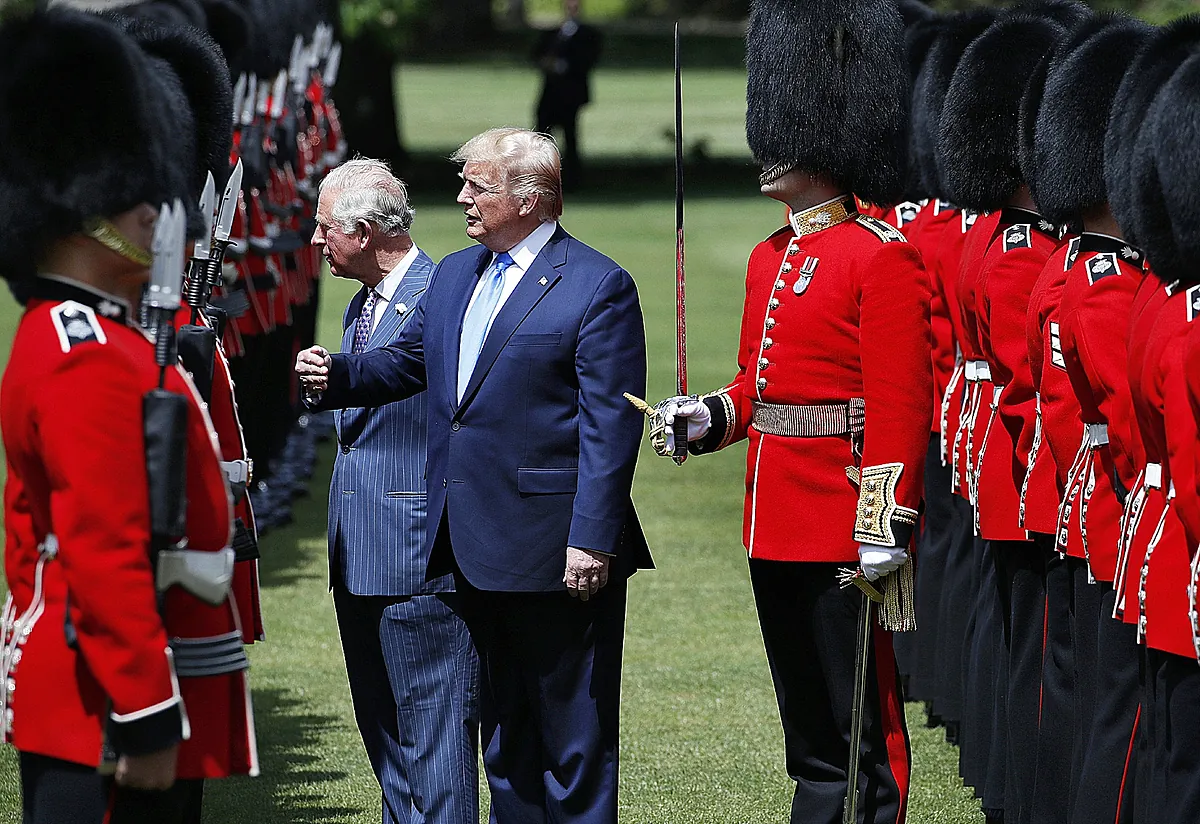Easing Trump's Legacy: A US-Commonwealth Alliance?
Editor’s Note: The potential for a strengthened US-Commonwealth alliance has emerged as a key topic of discussion following recent political shifts. This article explores the possibilities and challenges of such a partnership.
Why This Matters
The legacy of the Trump administration continues to shape US foreign policy, leaving many questioning the future direction of international relationships. A renewed focus on alliances, particularly with the Commonwealth nations, presents a significant opportunity to reshape the global landscape and address pressing challenges. This article analyzes the potential benefits and drawbacks of a strengthened US-Commonwealth alliance, examining its implications for trade, security, and diplomatic influence. Understanding this potential shift is crucial for anyone interested in international relations, global economics, and the future of US foreign policy. Key areas we will explore include economic cooperation, enhanced security partnerships, and the potential for a more multilateral approach to global issues.
Key Takeaways
| Benefit | Challenge |
|---|---|
| Increased Trade Opportunities | Navigating differing political ideologies |
| Enhanced Security Cooperation | Addressing historical colonial legacies |
| Strengthened Diplomatic Influence | Managing diverse national interests |
| Access to New Markets | Overcoming logistical and bureaucratic hurdles |
Easing Trump's Legacy: A US-Commonwealth Alliance
The potential for a revitalized relationship between the United States and the Commonwealth of Nations is a subject gaining traction in the post-Trump era. This alliance, once characterized by a degree of distance, presents a unique opportunity to rebuild bridges and forge a stronger partnership based on shared values and mutual interests.
Key Aspects:
- Economic Cooperation: The Commonwealth represents a significant market with diverse economic strengths. A strengthened alliance could unlock new trade routes and investment opportunities, fostering economic growth for both the US and Commonwealth members.
- Security Partnerships: Collaboration on counter-terrorism, cybersecurity, and climate change represents crucial areas where joint efforts could significantly enhance security for all involved.
- Diplomatic Influence: A unified front on the global stage could significantly amplify the voices of both the US and Commonwealth nations, particularly on issues such as climate change, human rights, and sustainable development.
Detailed Analysis:
The economic potential is substantial. The Commonwealth encompasses a wide range of economies, from developed nations to developing ones, offering diverse opportunities for trade and investment. However, navigating differing regulatory frameworks and trade practices will be critical. Security cooperation will necessitate addressing the complexities of different national security priorities and building trust. Finally, diplomatic success will rely on fostering consensus and addressing the diverse perspectives within the Commonwealth. This requires a nuanced understanding of historical context and national interests.
Interactive Elements
Enhanced Trade Relations: A New Era of Economic Partnership
The potential for increased trade between the US and Commonwealth nations is significant. This section delves into the specifics of boosting trade, including tariff reductions, streamlined customs procedures, and the creation of joint investment projects. Examples of successful trade agreements between individual US states and Commonwealth nations will be showcased, highlighting best practices for broader collaboration. The risks of protectionist measures and potential trade imbalances will also be discussed, along with strategies for mitigation. The impact of enhanced trade relations on economic growth in both the US and Commonwealth nations will be analyzed.
Security Cooperation: A Multifaceted Approach to Shared Challenges
This section will focus on the many facets of security cooperation, including collaborative efforts in counterterrorism, cybersecurity, and disaster relief. Specific examples of successful past collaborations will be provided to illustrate the potential benefits of future partnerships. We will discuss the challenges involved in coordinating security strategies across diverse national contexts. The potential impact of enhanced security cooperation on global stability and national security for both the US and Commonwealth nations will be highlighted.
People Also Ask (NLP-Friendly Answers)
Q1: What is a US-Commonwealth Alliance?
A: A US-Commonwealth alliance refers to strengthened economic, security, and diplomatic cooperation between the United States and the nations of the Commonwealth of Nations.
Q2: Why is a US-Commonwealth Alliance important?
A: It offers significant opportunities for economic growth, enhanced security, and a stronger diplomatic voice on the global stage, addressing shared challenges more effectively.
Q3: How can a US-Commonwealth Alliance benefit me?
A: Depending on your field, benefits could include increased trade opportunities, enhanced job prospects, and greater security.
Q4: What are the main challenges with a US-Commonwealth Alliance?
A: Challenges include navigating diverse national interests, overcoming historical legacies, and addressing logistical and bureaucratic complexities.
Q5: How to get started with promoting a US-Commonwealth Alliance?
A: Support organizations advocating for stronger international partnerships and engage in informed discussions about the benefits and challenges.
Practical Tips for Strengthening a US-Commonwealth Alliance
Introduction: This section provides actionable steps for individuals and organizations interested in fostering a stronger US-Commonwealth partnership.
Tips:
- Support organizations promoting US-Commonwealth collaboration.
- Advocate for policies that encourage trade and investment between the US and Commonwealth nations.
- Engage in public discourse to highlight the benefits of a stronger alliance.
- Promote educational exchanges and cultural collaborations.
- Support initiatives that foster security cooperation.
Summary: These tips aim to facilitate a more collaborative and mutually beneficial relationship between the US and Commonwealth nations.
Transition: Let's conclude by summarizing the key takeaways from our exploration.
Summary
The potential for a strengthened US-Commonwealth alliance offers significant opportunities for both parties. However, success requires careful consideration of the challenges and a commitment to building trust and cooperation.
Closing Message
The future of US foreign policy hinges on forging strong, mutually beneficial alliances. The Commonwealth presents a unique opportunity to build a more stable and prosperous future. What steps can you take to support this collaboration?
Call to Action (CTA)
Learn more about the Commonwealth and its member states. Share this article to spread awareness and encourage discussion!
(Hreflang tags would be included here, tailored to the specific languages the article is translated into.)

